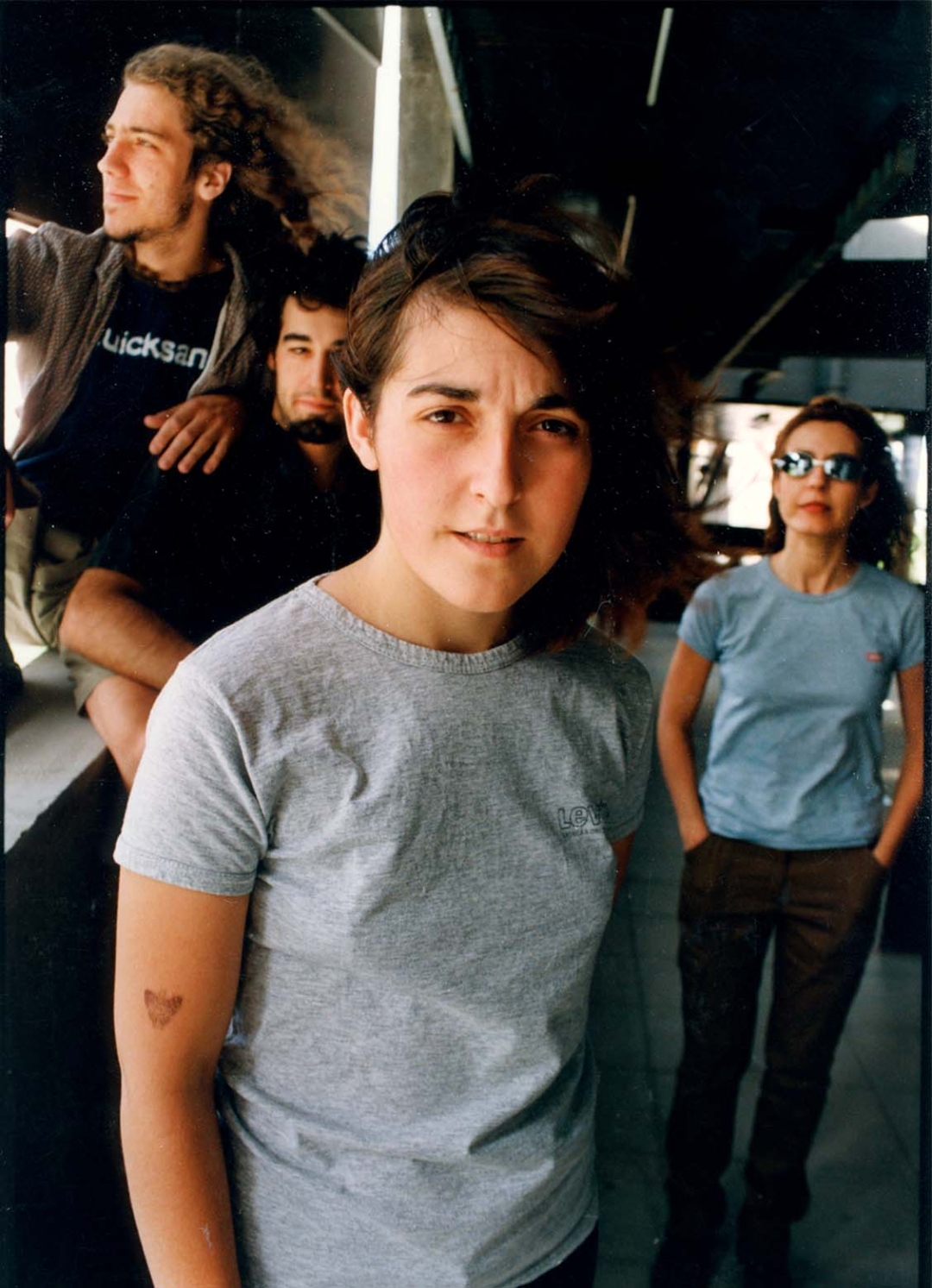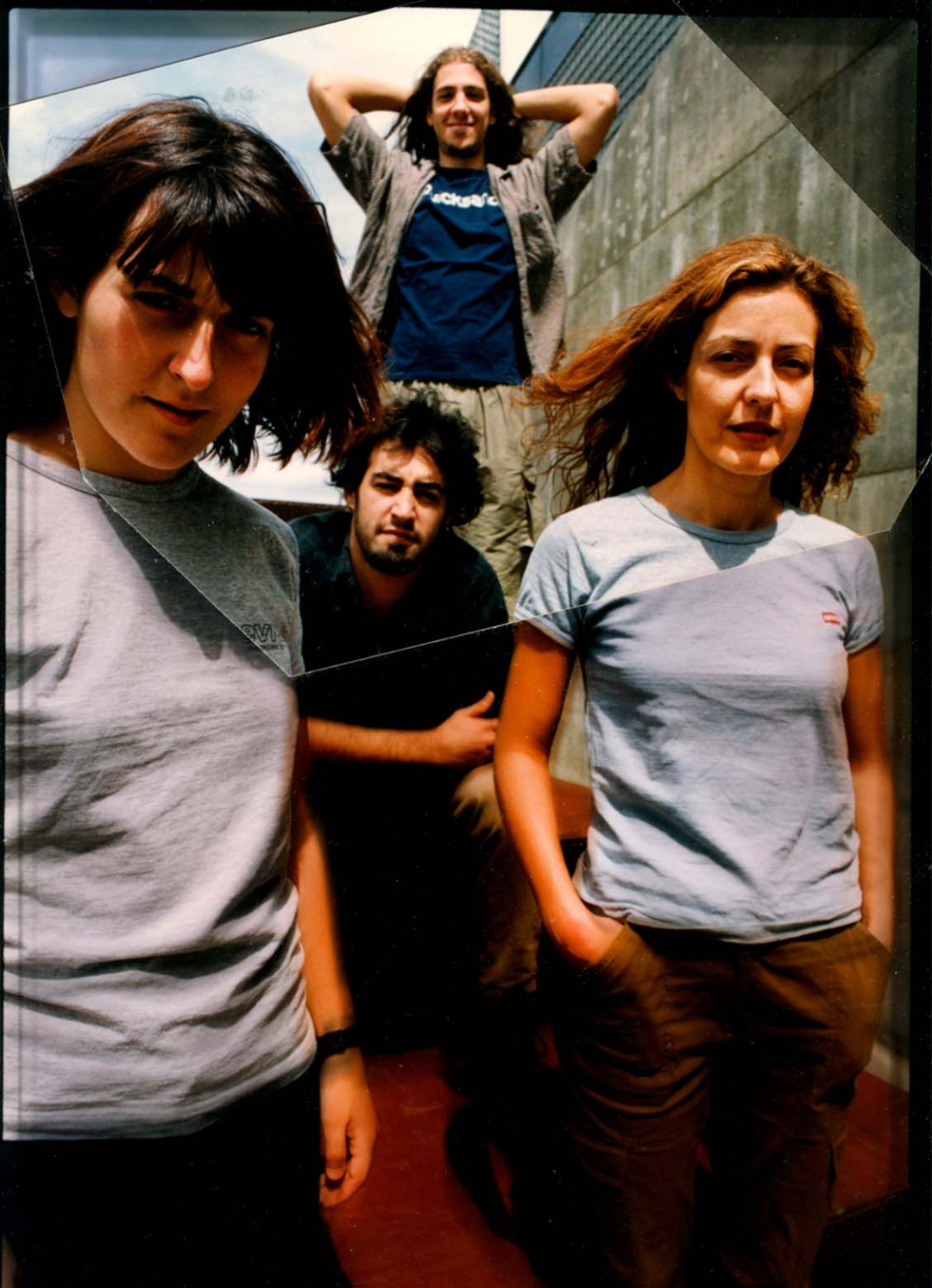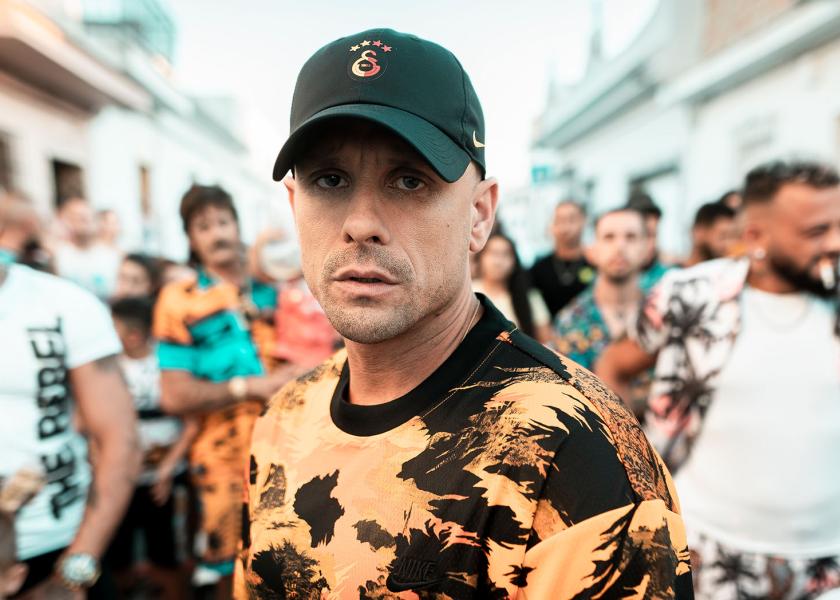Dover
Devil came to me

In 1997, Spanish music heavily featured Dover, a band from Madrid that worked on the independent side-lines of the industry. They sang in English, played raucous rock, and were led by two sisters, Cristina and Amparo Llanos. 'Devil came to me' turns 25 and was the album that established them that same year and that we remember today.
It wasn’t at all easy but, nevertheless, they became a landmark. Their second album came out on the 21st of April 1997. Scarcely a week later, Carlos Galán, the director of Subterfuge, the record label that released Devil came to me, called the Llanos sisters to tell them that the album had already sold 4,000 copies. A few years before, also singing in English, Australian Blonde, a band from Asturias, had sold 8,000. “That was the peak of our expectations,” Amparo tells us. And she adds: “We could dream whatever we wanted, because dreaming is free, but we were mentally prepared. Making the music that we did, and the way that we made it, selling a lot was completely beyond our possibilities.”
Nobody imagined that, over the following months, the snowball effect would turn Devil came to me and Dover into a success. They were the first independent rock band to achieve a Gold Record, 50,000 copies sold at that time. “From the beginning we sensed that it was a special album —explains Galán—. The initial goal was to break the glass ceiling of 10,000 copies sold. We sold 700,000.”
On the 19th of March, Subterfuge held the first commemorative event celebrating the 25th anniversary of Devil came to me with a concert at Teatros del Canal in Madrid. The young band Featherweight played the entire album. “It’s one of the albums that has influenced us the most and helped us to find our label,” Miguel, the band’s singer, tells us. "That blend of strong distorted guitars with catchy melodies is something we’ve taken exceptional care of since the beginning.”
“From the beginning we sensed that it was a special album. The goal was to break the glass ceiling of 10,000 copies sold. We sold 700,000”
Amparo was planning on attending, but personal circumstances kept her away. “Cristina has retired from public life. She doesn’t go out, attend concerts, or give interviews. She took the decision in 2015, when we broke up the band. We still see each other often, twice or three times a week. She’s also reliving this anniversary fondly. We don’t tend to look back, but the memories are great.” The connection between both Llanos sisters is key to understanding Dover. Cristina set up the band in 1992 and asked her sister to help her get gigs. A year later, the line-up changed, and Amparo became the guitarist. Their repertoire expanded with arrangements by both sisters. “We wanted to make music just like we felt it —Amparo remembers—, songs full of melody, with extremely personal lyrics sang in English, through Cris’ sometimes coarse and other times intimate voice, featuring guitars at a deafening volume. At that time, it was something unheard of in Spain, and it hasn’t been repeated since either.”
During their car rides, Miguel’s father used to play Devil came to me. “I was six or seven and enjoyed myself immensely. In fact, I connected so strongly with Dover’s songs that they were the first band I saw live.” Jorge, Featherweight’s guitarist, heard them over the radio. “I heard Serenade and was pleasantly surprised. I thought they were an American band, but my father told me they were Spanish.”
Miguel L. Garrido, producer and audiovisual director, first came into contact with Dover through their third album Late at night (1999). Some relatives gifted it to him because “that was the music young people listened to at that time”. He got caught up in the quartet’s energy and quickly came to Devil came to me. “That album is the soul of Dover” —says Garrido, who’s also a musician—. “It taught me what good songs were, foolproof melodies like those by the Beatles with an aggressive guitar-heavy sound.” During the pandemic, he relistened to the album and realised it was still a gem. He started working on a documentary that’ll tell the story of the Llanos sisters and recall a band whose achievements may not be as well remembered as they deserve. Dover, die for rock & roll is practically finished and will come out in 2022.
One of the facts worth remembering about Dover is that it was a rock band led by two women. The 1990s had been kickstarted with grunge. Kurt Cobain, the face of Nirvana, included feminism among the main themes of his discourse and female rock bands like Bikini Kill, Hole, or L7 spread like wildfire in the underground scene. “At that time —Amparo remembers— there was a strong female presence in the rock scene, it was like a new feminist wave, and we felt a strong connection. We were predisposed to those bands, and we enjoyed being seen as something new in Spain. It was common for music like Dover’s to be made by men, and for male voices to sing like Cris did.”
Some people criticized them for singing in English, which for Amparo was also a way of implying that they didn’t deserve the attention they were getting because they were women. For Garrido, the fact that Dover sang in English was part of its intrinsic value: “They expressed themselves in the language that they wanted, and that’s also a form of defiance. Perhaps their sound isn’t extremely present in modern music, but their influence is because it goes beyond style.” Gemma del Valle, communication director and cofounder of Subterfuge, was in charge of promoting the LP. “It’s true that, given that they were young women, we had to be extremely serious. The Llanos sisters have always been bosses. They never hesitated. But I also have to say that I’ve seen more of this kind of sexist attitude towards female artists towards the end of the 2010s. In the 1990s, women were highly visible in the independent scene in Spain and around the world.”
“It was common for music like Dover’s to be made by men, and for male voices to sing like Cris”
A quarter of a century after that overwhelming success, the title Loli Jackson, one of the songs on Devil came to me and the first they recorded for Subterfuge —as well as the name of the label they’d found a few years later—, reverberates like a metaphor of what the Llanos sisters were, two women from Madrid who expressed themselves in English and identified with the English-speaking bands that inspired them. Garrido tells us that Barrett Jones, producer of the Foo Fighters who also worked with Dover between 1999 and 2002, assures viewers of the documentary that he’d never heard anything like it. For Galán, “it’s an indisputable album by a band with a crushing live performance”, and Gemma del Valle adds that “it’s an LP that encapsulated the spirit of the times. When you listen to it now, it still retains all its power, it captivates you within seconds, and remains overwhelming.”
“If I had to choose one song —says Amparo when we ask her which is her favourite from the album— it’d be Rain of the times, which is one of the least played and the song we opened gigs with.” Amparo also adds that, although she doesn’t get carried away by nostalgia, when she talks about those days it’s as if she’s living them now. She hopes she can soon play again with her current band, New Day. “I think I’m like my grandmother on my mother’s side, actress Nieves Barbero. She was part of Paco Martínez Soria’s company and loved going on tour with the gang. I also struggle to leave the stage.”





